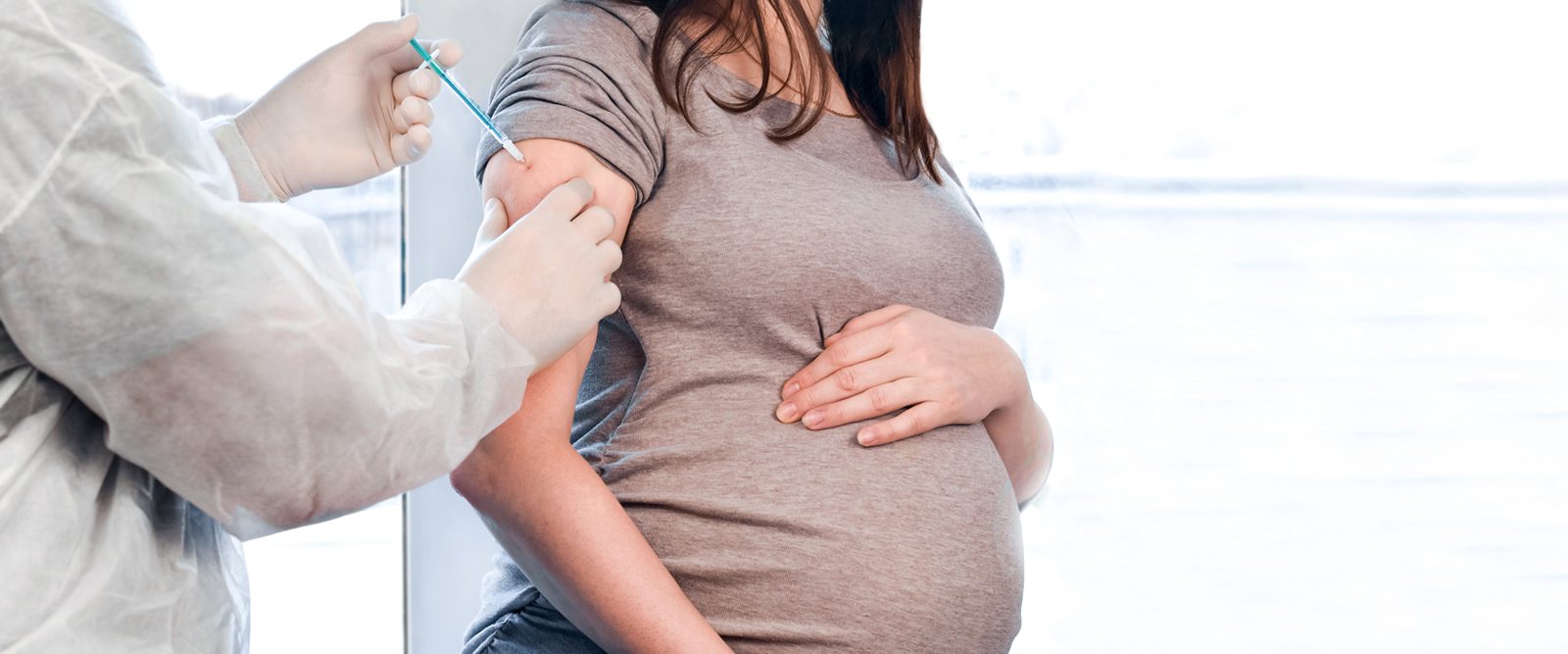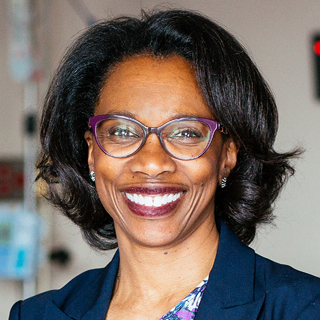How the New RSV Vaccine for Pregnant People Can Protect Infants From Severe RSV Illness
An OB-GYN explains how the newly approved vaccine protects babies against RSV, when expectant parents should get the shot, and what to know about its overall effectiveness.

A groundbreaking RSV vaccine for pregnant people is now available to protect their babies from the respiratory syncytial virus (RSV), a common respiratory virus that can cause serious illness in infants and young children. This single-shot RSV vaccine, called Abrysvo, is the first maternal vaccine to be given during pregnancy to protect newborns from RSV.
“I am very excited about this new vaccine,” says Dr. Laura Riley, obstetrician and gynecologist-in-chief at NewYork-Presbyterian/Weill Cornell Medical Center and chair of the Department of Obstetrics and Gynecology at Weill Cornell Medicine. “It has proven to be safe and effective, and I’m encouraging all of my eligible patients to get the vaccine during RSV season.”
Each year in the United States, RSV causes the hospitalization of an estimated 58,000 to 80,000 children under age 5 and up to 300 deaths. It is the leading cause of hospitalization among infants, and most children will get RSV by age 2. Babies under 6 months old are at greatest risk for severe RSV illness because their immune systems are still developing, Dr. Riley says. “These are things that no parent wants to go through,” she says. “Here we have an option to protect babies, and it is a good and safe option.”
Approved in 2023, the RSV vaccine for pregnant people is the second new tool available to protect babies from RSV. The other is an antibody shot given directly to infants from birth to 8 months old who are born during or entering their first RSV season, as well for children 8 to 19 months old who are at increased risk for severe RSV illness and are entering their second RSV season.
To prepare for RSV season this fall and winter, Health Matters spoke with Dr. Riley about the new pregnancy vaccine and what expectant parents need to know.

Dr. Laura E. Riley
How does the new RSV vaccine for pregnant people work?
The vaccine is given to pregnant mothers to stimulate antibodies to the respiratory syncytial virus. Those antibodies that are stimulated in the mother then cross the placenta and provide protection for the baby from the time of birth through at least the first months of life, when they’re at greatest risk for severe illness, if not death, from RSV. So on Day 1, the baby has protection.
How effective is the vaccine?
The trial showed that the vaccine reduced the risk of newborns being hospitalized from RSV by nearly 60% in their first six months. The antibodies do wane over time, but they protect babies when they are most at risk of developing severe RSV illness.
Is the vaccine safe?
Yes. The safety data from the vaccine trial was excellent. We feel very confident that it is a safe vaccine for both babies and moms.
When should pregnant people receive the vaccine?
The maternal RSV vaccine is recommended for September through January because those babies will be born during RSV season. It is approved for use in pregnant individuals from 32 through 36 weeks gestation, which is in the third trimester. This is for a couple of reasons. You need about 14 days to mount an antibody response that then transfers to the baby. It takes time. It’s not immediate. So the idea is that the baby has time before they are born to build up those antibodies so they are protected.
Another reason is that in the vaccine trial, there was a slight but not statistically significant increase in preterm births in women who received the vaccine versus placebo. I think that the FDA is being super cautious and therefore approved it to be given in the third trimester.
Are there side effects of the vaccine?
The most common side effect is pain at the injection site. Others include headache and muscle pain, but nothing out of the ordinary.
What other vaccines should you get during pregnancy?
If we go through them systematically, there are the flu, TDAP, and COVID-19 vaccines. These can be given at the same time, along with the RSV vaccine.
The flu and COVID vaccines are “two-for-one” vaccines, meaning they protect Mom from getting sick and the antibodies pass through the placenta and protect the baby as well. We should all get the flu shot during flu season, including pregnant people at any point during pregnancy. And it’s important to stay up to date on COVID vaccines as well.
The TDAP vaccine is a little different. It is given between 27 and 36 weeks of pregnancy. The purpose of the TDAP vaccine is to protect the baby from pertussis (whooping cough), another serious illness for infants, in the first few months of life.
In addition to the pregnancy vaccine, should babies get the new RSV antibody shot, called nirsevimab?
In general, the recommendation is if Mom gets vaccinated, the baby does not need the infant antibody vaccine. If the mother was out of the seasonal range to receive the pregnancy vaccine, or didn’t get it for another reason, then parents should certainly have the option of giving their child the antibody infant shot. The reason that we need to have options is because there will be people who fall into one category and not the other, and we really want to protect babies.
Are there exceptions?
Yes. If the baby was delivered early, before the 14 days needed for the antibodies to cross the placenta after the maternal vaccination, that baby isn’t adequately protected from the vaccine and would be a candidate for the antibody shot too. Also, for babies with a health issue that makes them particularly high risk for severe RSV, for whom you want to give even more protection, doctors may recommend the antibody shot in addition to the pregnancy vaccine.
Laura Riley, M.D., is obstetrician and gynecologist-in-chief at NewYork-Presbyterian/Weill Cornell Medical Center and chair of the Department of Obstetrics and Gynecology at Weill Cornell Medicine. She leads the obstetrics and gynecology enterprise at Weill Cornell Medicine and NewYork-Presbyterian/Weill Cornell Medical Center. Dr. Riley is also chair of the Infectious Disease and Disaster Preparedness Task Force with the American College of Obstetricians and Gynecologists. She has published more than 50 articles in peer-reviewed journals and written two books for consumers, You and Your Baby: Pregnancy and You and Your Baby: Healthy Eating During Pregnancy.
Additional Resources
Learn more about NewYork-Presbyterian’s comprehensive women’s health services.
